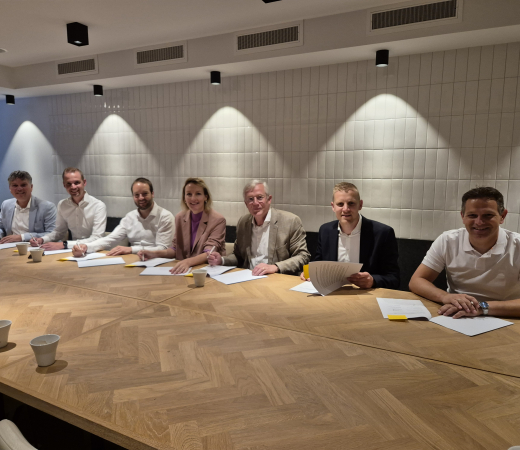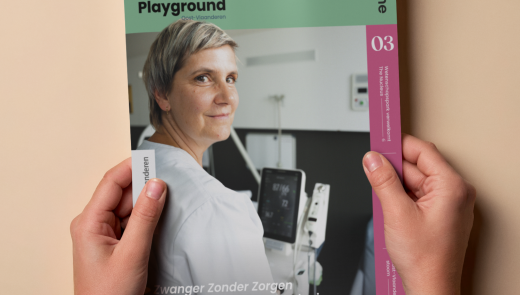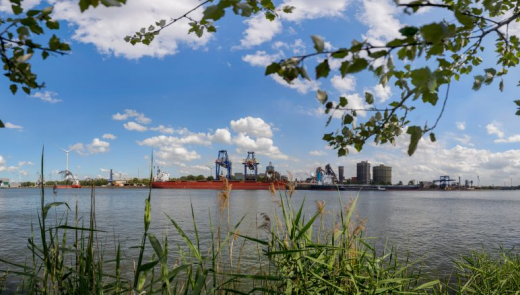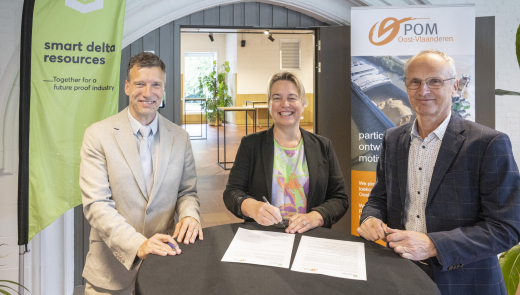Important step towards new heating system for Ghent-Terneuzen Canal Zone

Using residual heat released during industrial production processes to heat homes and other businesses in an environmentally friendly way. Important steps have been taken in the Ghent-Terneuzen Canal Zone to further develop this idea. Various parties from the region have signed a cooperation agreement to conduct research into the realization of a robust and future-proof heating system for the area. This system will supply heat to businesses, homes, and greenhouse horticulture, thereby reducing natural gas consumption—with all the associated environmental benefits.
Collaboration
The collaboration agreement for the feasibility study has been signed by Dow, Warmco, NetVerder, VoltH2, the Municipality of Terneuzen, the Province of Zeeland, North Sea Port, and Smart Delta Resources. This agreement officially marks the start of the first phase of a feasibility study. The aim of the collaboration is to investigate whether residual heat from Dow and VoltH2 can be used effectively, with NetVerder realizing and managing the heat network. The residents of the municipality of Terneuzen, Warmco, and other companies are the intended consumers of this sustainable residual heat. In addition, a number of other industrial parties have expressed interest in joining the heat chain once the concept has been proven feasible.
Research
The heat transition in the Netherlands and Flanders has been in full swing for some time now. In the recent past, a number of studies have been conducted into residual heat utilization in Zeeland, with a particular focus on the built environment. Smart Delta Resources, the cross-border partnership of companies, ports, knowledge institutions, governments, and network operators in the Flemish-Dutch Scheldt Delta region, has subsequently drawn up an action plan to further expand this with the application of residual heat for companies. Within the industrial cluster in the Ghent-Terneuzen Canal Zone, there is sufficient residual heat available to supply both the built environment and businesses with heat.
Next steps
The feasibility study is expected to provide an answer by the end of 2024 as to whether it is technically, financially, and socially feasible to realize a heat structure in the Dutch part of the Ghent-Terneuzen Canal Zone. If the result is positive, a final decision can then be worked toward. The aim is to supply the first heat in the course of 2029.
Maarten den Dekker, director of Smart Delta Resources: “I expect that more participants from the industrial cluster will join the developments surrounding the heat chain in the short term. In the medium term, linking up with the heat networks and heat initiatives in Belgium is an obvious step. This will make the overall heat system more robust.”


